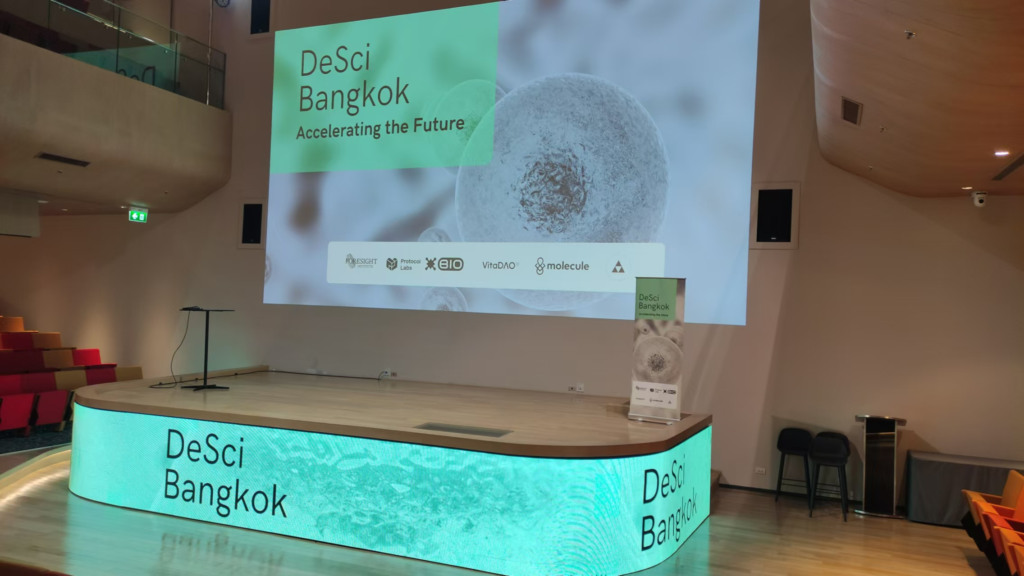
After an amazing week in Bangkok, while meeting with the DeSci and Earth commons community I finally thought of an answer to Gerard ‘t Hooft‘s question to 零一学生.
When thinking about technological evolution and intelligent machines, Gerard asked us to think about the possibility of AGI-capable robots conducting scientific research/experiments. What would such science look like?
If we cannot understand the robots narratives (models) nor their chatting about measurements (data), how can we tell they are doing research? Can we think of a narrative-agnostic operational definition of scientific research?
When robots/machines use instrumentation to gather data from an experimental set-up and then generate new narratives by feeding the data to algorithms. Wouldn’t that be science? Notice, that as expected, such robots would be capable of construction. This means, such robots will ‘secrete’ technologies as a by-product of their evolution.
An operational definition of scientific research of such sort would also help us build research tools for a decentralized autonomous swarm of intelligent agents which can also instantiate such automated algorithmic research activity. All research narratives (questions too “important” and all other questions about Nature robots might have the interest to ask) are just that, narratives. Technological production on the other hand is a typical outcome of science. If robots produce new technologies, they do it by doing science.
Such a swarm of agents can also be human as it would be in a decentralized group of citizen scientists. These scientists, spanning from all generations, cultures, and walks of life might have non-overlapping narratives. The only common factor is Nature on planet Earth. Its patterns of land use over the surface, and the ecosystem services it provides over space, time, and levels of biological organization to render living conditions over such surface.
DeSci can meet ReFi only at the local level. At the human scale. Such a scale, is where communities assemble (eco-social system) and ecosystems make it possible (services). It is the loci where habitats are generated and re-generated by Nature’s constructor (the Arm). If members of these communities want to conduct scientific research, good tools need to make no assumptions about the reasons and interests driving the science. The tools should be relevant regardless.